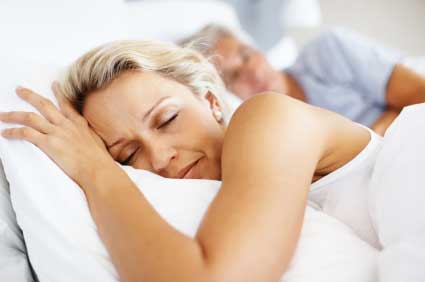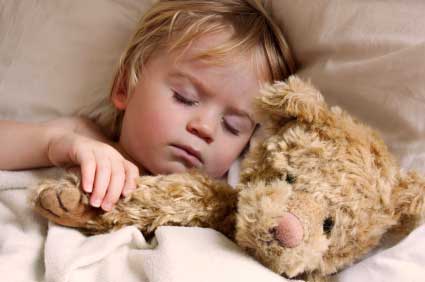What Channel Was Taken on Last Night
A good night's sleep is something we all value. Scientists tell us, and we know from experience, that it refreshes us, helps us perform better, and contributes significantly to health and happiness, especially in children. And yet, there are millions of us suffering from ongoing shortage of sleep.
According to the World Association of Sleep Medicine (WASM), sleep problems add up to a global epidemic that affects 45% of the world's population.
"Insomnia, obstructive sleep apnea (OSA), restless legs syndrome (RLS), and sleep deprivation significantly impact physical, mental and emotional health, in addition to affecting work performance and personal relationships," they said, on the fourth annual World Sleep Day on Friday 18th March 2011, when health professionals from WASM and other organizations worldwide came together to deliver the message that sleep is a "human privilege that is often compromised by the habits of modern life".
When we think about it, these figures are hardly surprising. Over the last two or three decades, the choice of round the clock activity available to the average Westerner today has become overwhelming. We can shop at 2 am, either at the supermarket or online, we can do our banking online 24/7, we can watch any number of films and TV channels or catch up on programs around the clock, we can download games, books and software and start enjoying them without having to wait until the morning.
And then there's the communications technology through which we make ourselves accessible to others, via mobile or cell phones, internet chats and and social networks like Facebook and Twitter. Over less than a generation our social "interfaces" have multiplied enormously, leading to an ever increasing volume of transactions with a growing number of people.
And all this impacts not only our daytime activity, but damages our sleep environment: it's much harder to wind down and prepare for sleep when the bedroom is more like a NASA control center than a haven of peace and tranquility.
This is especially evident in the younger generation. Research suggests that as a group, teenagers are experiencing sleep deprivation on an unprecedented scale. A contributing factor is the tide of technology flooding into the bedroom of the average teenager.
Home insurance surveys show that most British children have a games console, a TV, a CD player and a DVD player in their bedroom, which one in five parents now ranks as containing more expensive items than the kitchen or living room. The bedroom is also the room teenagers spend most of their time in, and where they tend to hang out with their friends when they call round.
Calling and texting on cell phones is an especially big stealer of sleep time among teenagers. Doctors in the US are becoming very concerned about the effect this has on their health and development.

Dr R Michael Seyffert of the New Jersey Neuroscience Institute at JFK Medical Center in Edison, sees two or three teenagers a month with severe night-time cell phone problems, which he defines as spending two or more hours of texting and phoning each night. He says he has seen more of this in the last five years than ever before, and predicts it is only going to get worse.
Few would disagree with him: as we drift on this tide of technology toward a total 24/7, globally connected society, with an increasing number of gadgets to inform, stimulate and entertain us, the traditional boundaries between activity and sleep are being eroded, and we are likely to see a rise in the number of people experiencing health problems from lack of sleep.
Expert opinion varies as to the exact number of hours of sleep we need for optimum health, and some suggest it also depends on individual needs and age. The American Academy of Sleep Medicine says most adults need about seven to eight hours of sleep a night to feel alert and well rested. The National Sleep Foundation also recommends between 7 and 9 hours.
One recent study suggests it could be as little as 6 hours, but more than 9 hours could be just as bad as not enough. Dr Charles Bae, a neurologist at the Cleveland Clinic Sleep Disorders Center in Ohio, and colleagues examined data on 10,654 patients who had competed questionnaires about quality of life, depression and average hours sleep per night.
They were surprised to find that sleeping more than 9 hours a night was linked to a similar reduction in quality of life and increase in symptoms of depression as sleeping less than 6, they said at the SLEEP 2011 conference in Minneapolis.
Children and teenagers need more sleep than adults. Teenagers need at least 9 hours, says the National Sleep Foundation in the US.
Many people do not realize that sleep is far from being a "passive" process where the brain just switches off at night. It is an "active" process involving the whole body and the brain.
Neurotransmitters, chemicals that brain cells use to signal to each other, control whether we are asleep or awake by action on different parts of the brain. In the brainstem, which joins the brain to the spinal cord, brain cells produce serotonin and norepinephrine that keep some parts of the brain active while we are awake, while other brain cells at the base of the brain control signals that lead to sleepiness and falling asleep by "switching off" the ones that keep us awake.
When we sleep we go through several stages of sleep from light to deep sleep, and then the cycle starts over. One of the stages is REM (rapid eye movement), which stimulates the brain regions used in learning. Infants spend much more time in REM sleep than adults. REM is also linked to increased production of proteins and learning of mental skills.
Research also suggests that a chemical called adenosine, which causes drowsiness, gradually accumulates in the bloodstream while we are awake and gradually breaks down during sleep.
Insufficient sleep is linked to diabetes, cardiovascular disease, obesity and depression, and other chronic diseases.
Lack of sleep is also responsible for accidents on roads and involving machinery, causing substantial injury and disability every year, according to the US Centers for Disease Control and Prevention (CDC), who warn that "drowsy driving can be as dangerous –and preventable — as driving while intoxicated".
Against this backdrop of the encroaching 24/7 technological society eroding our sleep boundaries, we also have the usual stresses and strains of everyday life and work, the responsibilities of running a home, and taking care of family. Add to this financial worries, threat and reality of job loss, relationship problems, and coping with illness, it is no wonder that getting a good night's sleep is even more elusive.
One thing we can do is to shift our perception of sleep as a luxury and treat it as necessity for good health, as important as keeping to a healthy weight, eating a healthy diet and taking plenty of exercise: we need to regard sleep as a "vital sign" of good health, say the CDC.

Here are some tips that might help:
Tip 1: Keep a Sleep Journal
A good place to start if you think you are not getting enough hours or quality of sleep at night, is to keep a sleep journal noting things like hours of sleep, ease or difficulty of falling asleep, when you exercise, when you drink alcohol and caffeine, how refreshed you feel, and then look for patterns between quality and length of sleep and what you do during the day and when you go to bed. This is often the first thing that a clinician will ask you to do.
For instance, after two weeks, you might find a pattern between exercise and sleep quality, or between caffeinated drink consumption late at night and the number of times you get up to go to the bathroom or difficulty falling asleep.
Tip 2: Stick to a Routine
Try to go to bed and get up at around the same time every day. Even at the weekend.
Keeping to a routine reinforces the body's sleep-wake cycle and helps you fall asleep more easily at night, say experts at the Mayo Clinic in the US.
If you need an alarm clock to wake you up on time, you should consider going to bed earlier.
Tip 3: Control Napping and Drowsiness
A cat-nap during the day can be a great refresher, especially for older people. But be careful about sleeping during the day: a refreshing nap may be useful occasionally for paying off your sleep debt, and is better than sleeping late because this disrupts your sleep-wake rhythm, but if you have insomnia and nap regularly, consider eliminating the daytime nap.
If you must have a nap, restrict it to 20 minutes and do it early afternoon and not later.
Drowsiness often happens after big meals. Avoid the temptation to let this drift into sleep. Get off the couch and get active: do the dishes, go for a walk, do some chores, or call a friend. The killer is the TV dinner: eat, fall asleep on the couch, wake up hours later, and then you can't get to sleep when you go to bed properly. We've all been there.
Tip 4: Avoid Lots of Drink and Food Before Bedtime
Keep in mind the saying: "breakfast like a king, lunch like a prince, and dine like a pauper". Eating or drinking large amounts before bedtime can result in indigestion, and night-time toilet visits to empty a bursting bladder. Try to eat a light meal at least two hours before bedtime, and if fatty or spicy foods give you heartburn, try to avoid them in your evening meal.
Be careful with coffee and tea, and other caffeinated drinks. Caffeine is a well-known stimulant that lingers in the body and if you drink it in the evening, it will not help you sleep. Try replacing that after-dinner coffee with chamomile tea, a traditional sleep inducing remedy that soothes.
Tip 5: Avoid Alcohol in the Evening
Although it is often thought of as a sedative, alcohol actually disrupts sleep. Even in small doses, it can impair quality of sleep, especially in the second half of the night.
Alcohol disrupts chemical messengers in the brain and the balance between REM sleep and non-REM sleep. The right balance in sleep patterns and brain waves, what scientists call "sleep architecture", helps us feel refreshed in the morning, as Jessica Alexander, of the UK's Sleep Council told the Times newspaper in an interview:
"Alcohol can mean that sleep is no longer refreshing, because the brain can't perform the normal restorative job it does during the night."
Tip 6: Make Your Bedroom Sleep-Friendly
Keep your bedroom dark, cool, quiet and comfortable. This is the ideal environment for sleeping. Consider carefully each item in your bedroom, especially gadgets. If you have to keep them there, then be strict about switching them off, or even put them away in a cupboard. Switch off the cell phone or turn it to silent mode.
Many people watch TV in bed and claim it helps them get to sleep. Try doing without it for two weeks, and see what effect it has on your quality of sleep. It could be that the light from the screen disturbs the natural sleep-wake rhythm, and stimulating content like violence, advertisements, sudden loudness, raises your adrenaline and has the opposite effect from that which eases your body into sleep.
If you can't lessen disturbing noises such as dogs barking, sirens, birds singing in the morning, then consider masking the sound with a fan or white noise generator, or wearing earplugs.
An eye mask that blocks out the light can also help if you wake up easily when a light goes on, or the early sun comes through the curtains.
Tip 7: Exercise in the Morning
Exercise is a great way to help us relax and consolidate sleep. However, when we exercise can affect our quality of sleep.
Researchers say that morning exercise is best, and that exercising too close to bedtime delays the time the body starts to unwind because it increases chemicals that are associated with wakefulness.
In a study published earlier this year, Dr Scott Collier, assistant professor at Appalachian State University, found that aerobic exercise at 7 am was linked to higher improvements in sleep quality than exercising at 1 pm and 7 pm.
To help improve children's sleep health, here are some tips from the World Association of Sleep Medicine and others:

- Make sure children get enough sleep by setting an age-appropriate bedtime and waketime: and stick to this at weekends too.
- Establish a consistent bedtime routine.
- Make sure children wear comfortable night-time clothes, and infants have strong absorbing diapers or nappies.
- Limit electronic gadgets in the bedroom and their use before bedtime.
- Ensure children get plenty of outdoor exercise during the day.
- Avoid bright light at bedtime and during the night, and increase light brightness in the morning.
- Encourage your children to fall asleep independently.
- Stick to a consistent mealtime schedule, and don't give them caffeinated drinks.
This article covers some of the causes of sleep problems and gives some suggestions for overcoming them. If you find these don't help, or suspect your problems may be more serious than those covered here, then you should seek the advice of a medical professional who can give you expert help.
Sources : "Sleep Well, Grow Healthy: World Sleep Day Promotes Healthy Sleep for Infants, Children, and All Ages on March 18, 2011", PR Newswire 15 March 2011; Dec 2009 survey for esure.com, and Dec 2007 survey for Lloyds TSB Insurance (gadgets in children's bedrooms); "Night-texting taking its toll on N.J. teens", nj.com Sep 2009; National Academy of Sleep Medicine (US); Mayo Clinic; MNT Archives; Helpguide.org; "Alcohol How It Affects Your Sleep" Feb 2010 Times Online; NationalSleep Foundation (US); CDC; NINDS (NIH).
Written by: Catharine Paddock, PhD
What Channel Was Taken on Last Night
Source: https://www.medicalnewstoday.com/articles/230386